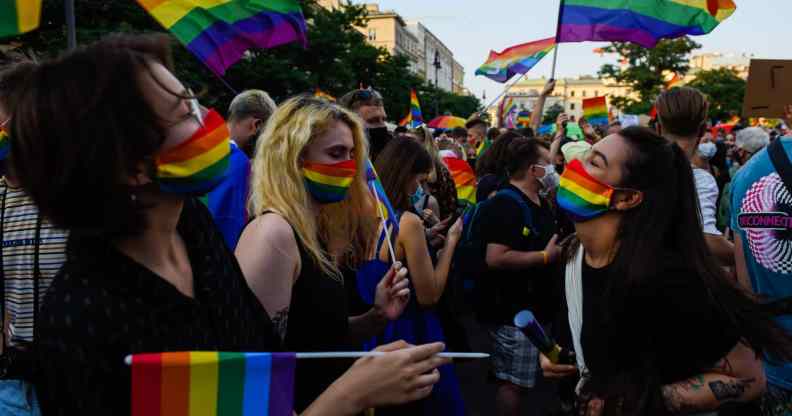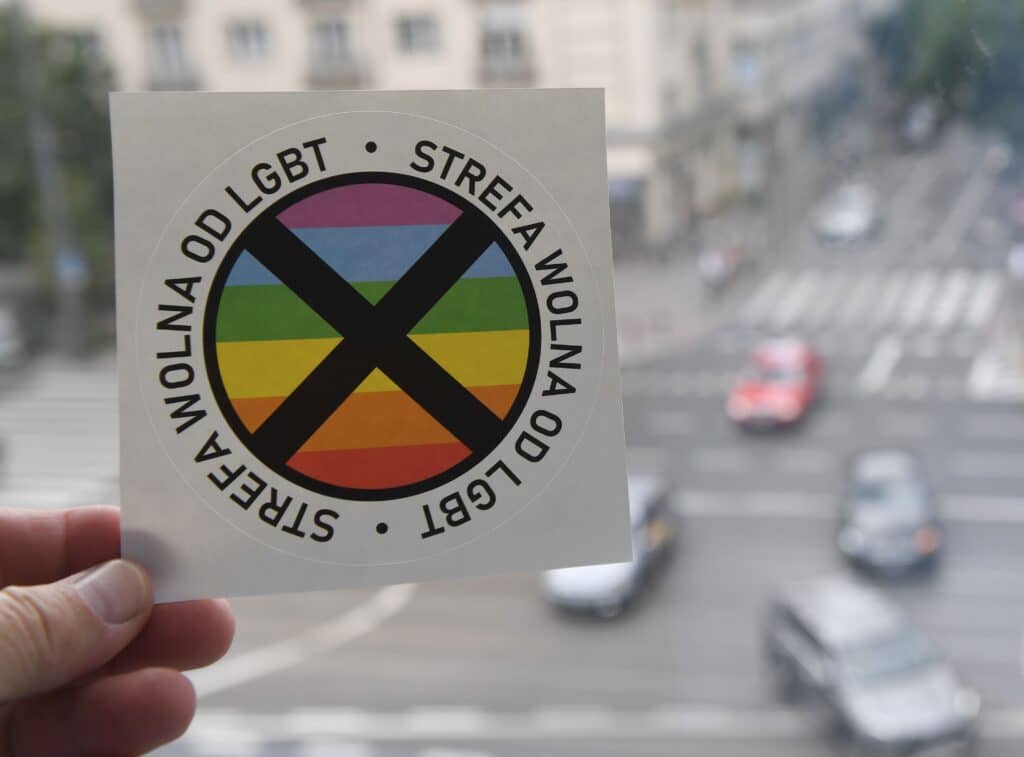Polish court strikes down two ‘LGBT-free zones’ for ‘gross violation of law’

For a time, nearly a third of Poland declared itself to be an ‘LGBT-free zone’ in a chilling display of united hate. (Omar Marques/Getty Images)
A court has annulled two more of Poland’s so-called “LGBT-free zones” for being in “gross violation of the law” and presenting LGBTQ+ people as “evil”.
Since 2019, almost 100 municipal or local governments have declared themselves “free of LGBT ideology”. At one point, so-called “LGBT-free” zones covered almost a third of the country.
A number of authorities have scrapped their “LGBT-free” pledges after being threatened with a loss of EU funding, with more being voided following legal challenges.
On Monday (9 May), two more were dissolved by court order.
Lublin Regional Assembly passed a resolution in April 2019 declaring that LGBTQ+ rights aim to “annihilate” the “values shaped by the Catholic Church”. To stop this from happening, the province pledged to stand up against “homopropaganda”.
In the same month, Ryki County, a district in Lublin, passed a resolution voting to protect “children, young people, families and Polish schools” from an apparent wave of “homoterror” being unleashed by “left-liberal groups”.
The Provincial Administrative Court in Lublin found the resolutions were “adopted without legal basis and in gross violation of the law” after a legal challenge by the Polish Ombudsman.
Both local authorities stoked an “intimidating, hostile and offensive atmosphere” for LGBTQ+ Poles by presenting the queer community as “a threat to government” and “an evil that must be fought”, the court found.
It added that both local authorities “discouraged tolerance towards LGBT people” – for example, by promoting a “mum, dad, child” model of family, both authorities were able to deem queer families “unworthy of protection, assistance and support”.
They become the eighth and ninth “LGBT-free zones” voided by the courts following interventions by the Polish Ombudsman. Municipal councils in Istebna, Klwów, Serniki, Osiek, Lipinki, Niebylec and the Tarnowski County Council all scrapped such measures in 2019.

Gazeta Polska, a pro-government newspaper, distributed ‘This is an LGBT-free zone’ stickers in 2019. (JANEK SKARZYNSKI/AFP via Getty Images)
The Polish Omdusnam’s top human rights commissioner at the time, Adam Bodnar, filed nine complaints with five provincial administrative courts as he sought to unravel Poland’s patchwork of “LGBT-free zones”.
The largely symbolic gestures carry no real legal weight but are often used to limit support for LGBTQ+ residents in the regions as well as to sever funding to pro-LGBTQ+ NGOs.
Many authorities have gradually voted to withdraw their bigoted measures. The first came in 2021 when the tiny town of Nowa Dęba binned its ban.
Many of the towns and provinces rely on vital funds from the European Union as part of the bloc’s twinning programme. The grants, of up to €150,000, are typically used to finance public works projects.
The EU, as well as Norway and Iceland, cut these grants from Polish towns that declare themselves “LGBT-free zones”. Doing so, the bloc said, violates Europe’s commitment to tolerance and equality.
The European Parliament passed its own resolution last year declaring all 27 countries in the bloc an LGBTQ+ “Freedom Zone“.

